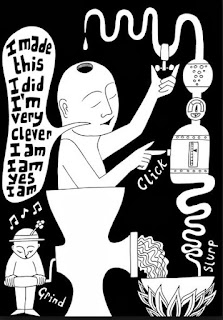A good friend who is a thoughtful intelligent person let me
know she considers all writers, actors, and artists to be too self-involved.
She is not a writer or an artist but she is a good reader and as such she consumes a lot of our output.
Obviously, this took me aback. Then I let it sink and got
to thinking.
I now see she has a point even as I insist on
shying away from broad stroke generalizations. Modern artists in
all media focus on personal and distinctive ways of seeing and revealing
reality. The creatives of the modern age are not bound by communal standards
and rigid rules. It is about individual insight aka “Me.”
This stands in clear contrast to religious art pre-renaissance,
where an artist’s abilities were in the service of communal thought and artists
were thus anonymous.
So once I licked the wound of what I took as a piercing indictment,
I realized my friend had a valid point.
But here’s the counter point: yes, artistic creativity is now
about the individual, and we like it that
way. The ethos of our country and the modern west is the individual.
There’s a spiritual and emotional cost to the modern way. An
honest look at artists will show this undeniable truth. The obsessiveness with
self comes at the expense of the serenity that yielding to the communal can
confer.
It’s a price we pay, and have insisted on paying, since the
European Renaissance and later the so-called European Enlightenment. As mechanization in industry standardized everything we consume, artists play a counterpoint with ever-increasing obsession with differences.
It has its
extreme excesses as well as points of luminosity. It is where we’ve gone;
always searching for why are we here.
Thank you for indulging my highfalutin musings this day.
Thank you for indulging my highfalutin musings this day.







